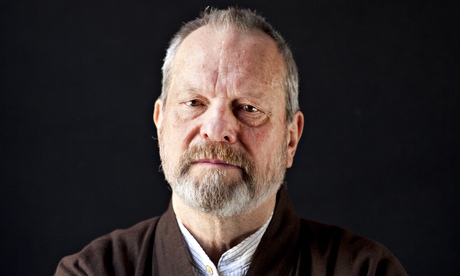
Terry Gilliam is being sued by a trio of street artists in Buenos Aires for allegedly using an elaborate work of graffiti without permission in his film The Zero Theorem.
Two Argentinian artists, Franco Fasoli and Nicolas Escalada – AKA Jaz and Ever – along with a Canadian, Derek Mehaffey, known as Troy Lovegates or "Other", have sued Gilliam, production company Voltage Pictures and distributor Amplify Releasing in a US federal court in Illinois, asking for an injunction to halt the film's US release. They are also seeking statutory damages, profits and costs.
Their complaint, which was first detailed by the Hollywood Reporter, regards a celebrated mural in the zona de graffiti, or "street art zone", on Fitz Roy Street in Buenos Aires. "The copyrighted artwork has achieved international recognition in the art world, and is widely recognised by the public in Argentina and abroad," states the lawsuit. "Castillo is so important that it is one of the few public artworks that have survived for years in that particular zona de graffiti."
The complaint alleges Gilliam borrowed the work of art for a scene in The Zero Theorem depicting a mural on the outside wall of the burnt-out chapel where Christoph Waltz's downcast hacker lives. The trio are particularly scathing of the British-based film-maker's role in allegedly purloining their art work, citing a 1987 copyright suit by the artist Lebbeus Woods which they say was settled by Gilliam. Woods has in the past discussed how his artwork Neomechanical Tower was used as the basis for a torture chair in Gilliam's Twelve Monkeys. The new suit claims Gilliam has "clearly not learn[ed] his lesson".
The Zero Theorem was released in the UK on 14 March but has yet to hit cinemas in the US, where it is due for a same-day video-on-demand and limited theatrical release on 19 September. The film stars Oscar-winner Waltz as a computer programmer in a dystopian future city described by critics as reminiscent of Gilliam's own 1985 cult classic Brazil. In a review of the film for its UK release in March, the Guardian's Peter Bradshaw labelled The Zero Theorem "frantically overworked, over-designed and overdetermined in its hyper-crazy world where nothing seems really to be at stake", adding: "It doesn't really come to life."
Woods is reputed to have received a substantial financial settlement for the use of his work in Twelve Monkeys. But the 1995 science-fiction thriller was a rare Gilliam hit at the box office, taking $168m (£100m) – equivalent to $262m in 2014 – worldwide. The Zero Theorem, by contrast, has so far taken just $513,000.
• Mark Kermode on The Zero Theorem review – 'falling with style'
• Zero Theorem: the world according to Christoph Waltz

